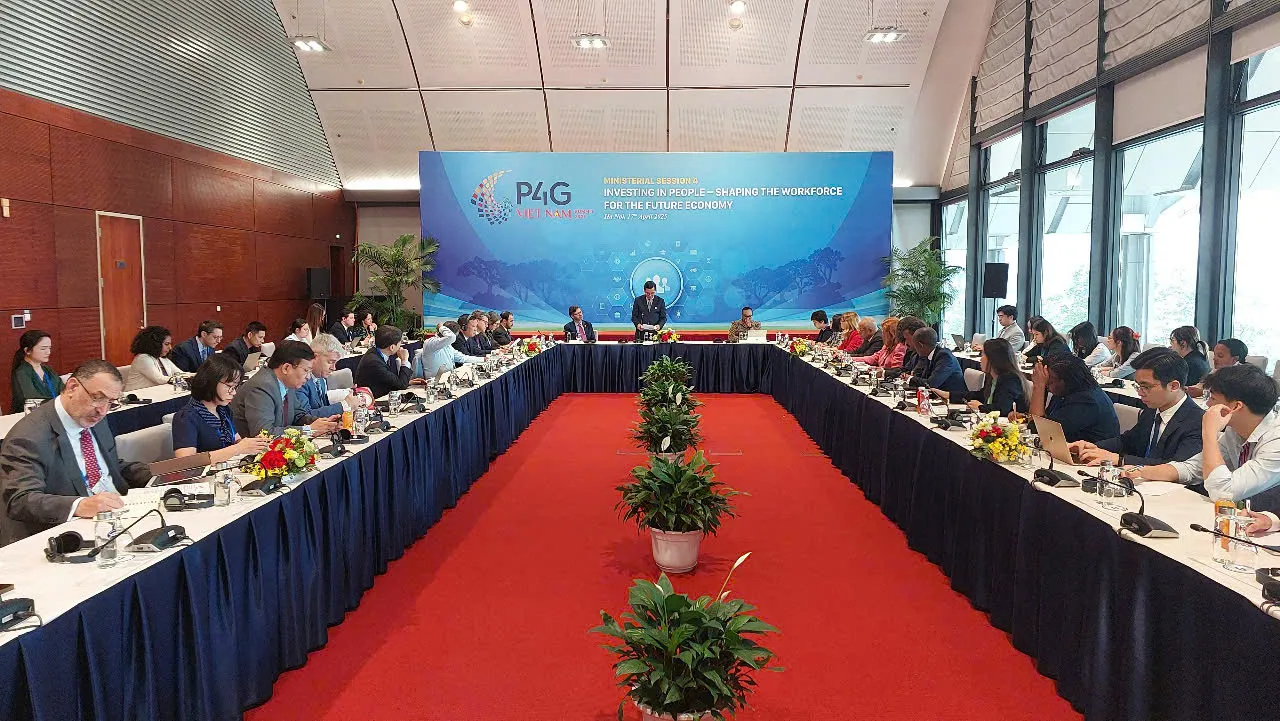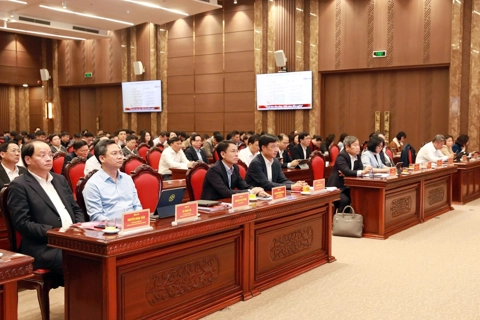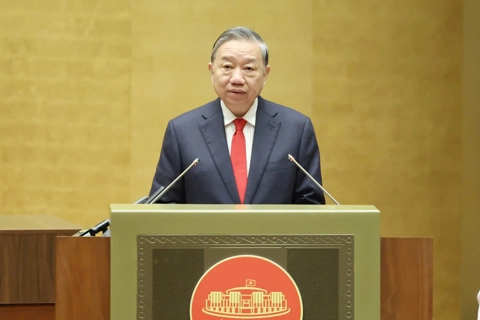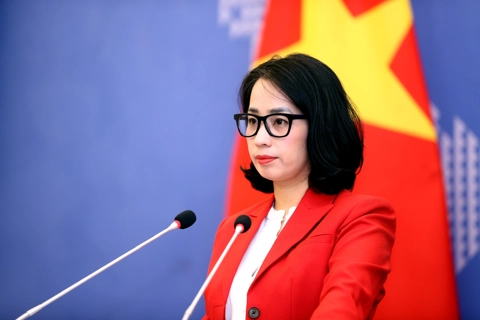Vietnam sees developing human resources as underlying sustainable growth
The panelists emphasized the importance of investing in students, saying they are the roots of sustainable development.
THE HANOI TIMES — Vietnam prioritizes investment in high-quality human resources and considers it the foundation for green and sustainable development, said Deputy Minister of Education and Training Nguyen Van Phuc on April 17.

Delegates discuss on human resource development for green growth during the P4G Summit 2025 on April 17. Photo: Minh Thu/The Hanoi Times
Speaking at a discussion on manpower development at the 4th Partnering for Green Growth and the Global Goals 2030 (P4G Summit) in Hanoi, Phuc said the Party and Government always consider education and training as a top national policy.
"Vietnam always puts investment in education as one of the priorities in all socio-economic development programs," he said.
He noted that developing a circular economy - by optimizing resources, reducing waste, and promoting sustainable development - is a foundation for achieving green transformation and Vietnam's commitment to net-zero emissions by 2050.
"Education plays a key role in developing industries and careers tied to the circular economy, and in training a workforce that can adapt to and lead the transformation," he added.
Phuc said the Ministry of Education and Training has issued various policies and mechanisms to support the development of training programs aligned with the circular economy, laying the foundation for a green workforce.
He emphasized the need for the vocational and higher education sectors to develop new training programs that focus on skills and academic development in key areas to support the circular economy.
These key areas include biotechnology, renewable energy, organic agriculture, green building, environmental technology, waste management, materials recycling, green logistics and sustainable product design, he said.
Phuc stressed the importance of advancing education and business models in line with circular practices, strengthening international cooperation and access to green knowledge, and supporting green job transitions at the local level.
"We need to prioritize reskilling and job transition policies for workers in areas affected by the green transition to ensure that no one is left behind," he said.
Shantanu Chakraborty, Country Director of the Asian Development Bank (ADB) in Vietnam, said governments need to improve innovation capacity and adapt quickly to green technologies to keep pace with global trends.
He recommended that countries invest heavily in education and training, develop "green" curricula for all ages and levels of education, make learning more hands-on, and promote lifelong learning to meet the demands of the green economy.
A recent ADB survey found that about 60% of Vietnamese youth currently miss the skills needed for green jobs by 2030, he said.
Chakraborty called on governments to provide incentives such as tax exemptions, training infrastructure development, and R&D funding, especially to build national skills and qualification frameworks for the green transition.
Such frameworks would lay a solid foundation for standardizing and scaling up quality training programs, he said.
The ADB also urged regulators, educational institutions, and businesses to work closely to implement flexible training programs that will reduce the skills gap and help workers and communities participate in green initiatives, conserve natural resources, and adapt to climate change.
Ramla Khalidi, Resident Representative of the United Nations Development Program (UNDP) in Vietnam, said the green workforce is a key factor in achieving climate goals.
This transition poses major capacity challenges and requires innovative, updated and flexible training models, she said.
Khalidi recognized many pioneering initiatives in Vietnam aimed at sustainable development, including green vocational training programs, the promotion of digital skills, and adaptive thinking among youth.
She noted that green jobs currently account for only about 4% of the labor market, but this figure could grow tenfold over the next decade.
Bui Huy Nhuong, Vice President of the National University of Economics, said general education is particularly important to plant the seeds of green thinking and sustainability from an early age.
He emphasized the need to integrate environmental, climate and sustainable development issues into subjects such as science, geography and civics in a practical and interdisciplinary way that engages students.
Building green schools, organizing outdoor activities and raising environmental awareness are also effective educational approaches to gradually build green thinking in students, he said.
Nhuong also stressed the importance of training core teachers and improving pedagogical capacity to integrate sustainability education into the classroom.












